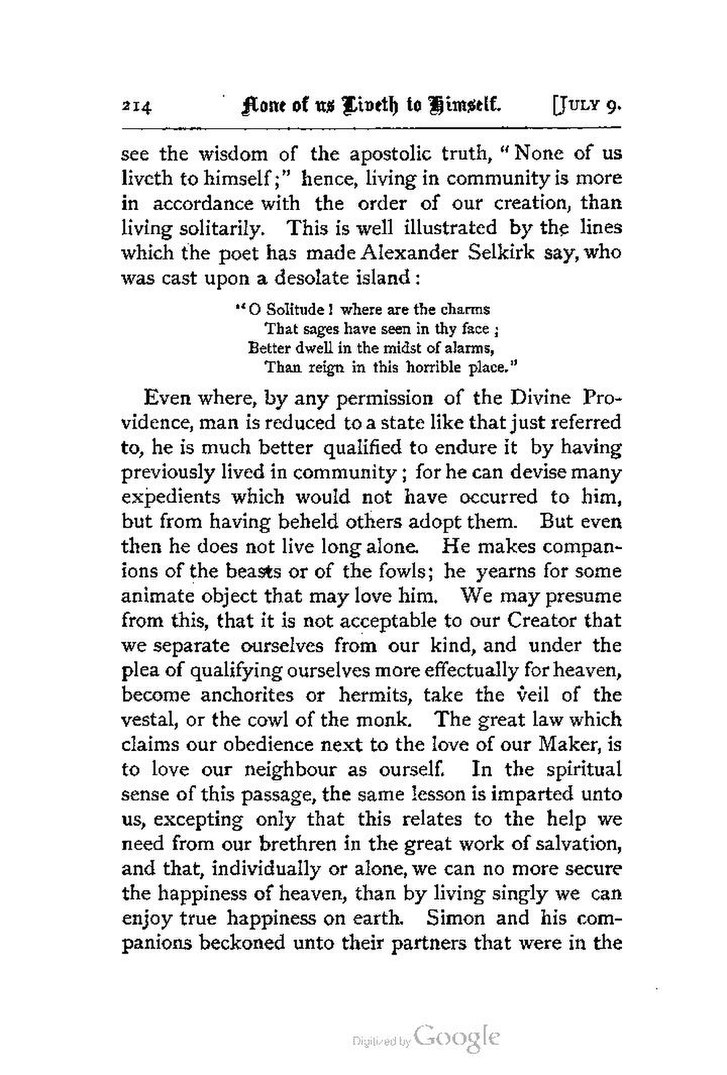see the wisdom of the apostolic truth, "None of us liveth to himself;" hence, living in community is more in accordance with the order of our creation, than living solitarily. This is well illustrated by the lines which the poet has made Alexander Selkirk say, who was cast upon a desolate island:
"O Solitude! where are the charms
That sages have seen in thy face;
Better dwell in the midst of alarms,
Than reign in this horrible place."
Even where, by any permission of the Divine Providence, man is reduced to a state like that just referred to, he is much better qualified to endure it by having previously lived in community; for he can devise many expedients which would not have occurred to him, but from having beheld others adopt them. But even then he does not live long alone. He makes companions of the beasts or of the fowls; he yearns for some animate object that may love him. We may presume from this, that it is not acceptable to our Creator that we separate ourselves from our kind, and under the plea of qualifying ourselves more effectually for heaven, become anchorites or hermits, take the veil of the vestal, or the cowl of the monk. The great law which claims our obedience next to the love of our Maker, is to love our neighbour as ourself. In the spiritual sense of this passage, the same lesson is imparted unto us, excepting only that this relates to the help we need from our brethren in the great work of salvation, and that, individually or alone, we can no more secure the happiness of heaven, than by living singly we can enjoy true happiness on earth. Simon and his companions beckoned unto their partners that were in the
